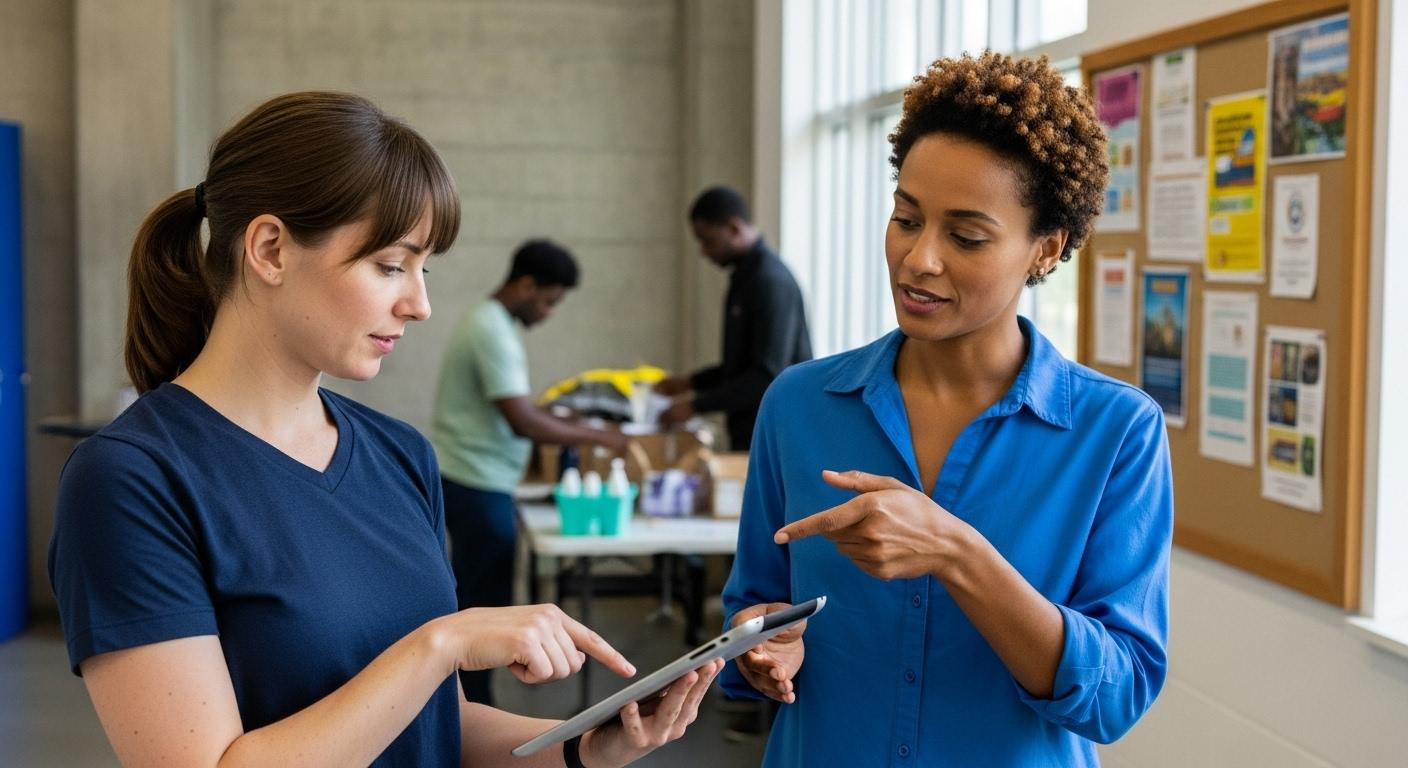Picture Kingston’s community center on November 3rd, 2025. Eager volunteers clutch donation bags while local coordinators patiently explain: “Your heart is in the right place, but let me show you how to help without harming.” Hurricane Melissa left Jamaica rebuilding, and travelers now seek meaningful ways to contribute. Research shows 32% of visitors want purposeful experiences. Yet uncoordinated aid can burden communities already stretched thin. Jamaica’s new National Volunteer Registry offers the solution. Seven ethical protocols designed by locals themselves, contrasted with four common mistakes that slow recovery.
Why your good intentions might burden Jamaica’s recovery (and what locals actually need instead)
Uncoordinated volunteer efforts often create more work for overwhelmed communities. Research demonstrates community-led projects achieve 50% higher success rates than well-meaning independent efforts. The hidden mechanics reveal the problem clearly. Volunteer coordination requires local staff time when resources are already scarce. Inappropriate donations create sorting and storage burdens for disaster response teams.
Unskilled volunteers can slow professional crews working against tight deadlines. The dignity framework matters most: locals want economic participation, not dependency relationships. Understanding these dynamics transforms how you approach helping during recovery periods. Supporting local businesses daily becomes the most effective form of volunteering. This shift from charity to economic empowerment makes the difference between burden and genuine assistance.
The 7 ethical volunteer protocols Jamaica’s communities designed
Jamaica launched its National Volunteer Registry on November 3rd, 2025. Minister Olivia Grange announced this coordinated system during a Kingston press briefing. The registry prevents volunteer saturation while matching skills to actual needs. Visit supportjamaica.gov.jm to register before traveling to affected areas.
Register through Jamaica’s National Volunteer Registry first
The November 2025 launch coordinates skilled matching and prevents effort duplication. Complete the simple registration form indicating your availability and specific skills. The system matches volunteers to genuine needs: food distribution, shelter operations, medical support, cleanup, counseling, transportation, or administrative tasks. Officials will contact, brief, equip, and deploy registered volunteers in efficient, coordinated ways.
Choose organized programs over independent volunteering
Organized volunteer programs report 35% higher satisfaction rates than independent efforts. Structure protects both volunteers and communities from well-intentioned harm. Global Empowerment Mission offers vetted experiences ranging from $50-$200 daily. These programs include cultural sensitivity training, local coordinator guidance, and community-approved project focus.
Support local businesses daily as your most effective volunteering
Spending money locally creates immediate economic impact during recovery periods. Eat at small restaurants serving $10-$15 meals prepared by local families. Purchase crafts and souvenirs ranging from $5-$50 from artisan cooperatives. Stay at locally-owned guesthouses charging $60-$120 nightly instead of international chains. Economic recovery data shows 15% GDP boosts occur within six months when tourists support local businesses consistently.
Direct cash beats donations by 25% effectiveness
Cash transfers outperform in-kind donations through measurable economic multipliers. Money circulates locally while creating choice and agency for recipients. Cash eliminates logistics burdens of sorting, storing, and distributing physical donations. GiveDirectly impact studies demonstrate 25% higher effectiveness for direct monetary assistance versus material goods during disaster recovery.
Vetted local relief funds and optimal donation amounts
Jamaica Red Cross serves as the primary recommended donation channel for hurricane relief. Contributions between $25-$100 create meaningful impact while maintaining transparency about fund deployment. Alternative options include direct payments to vetted local service providers. Supporting artisan cooperatives generates 28% income increases for local craftspeople during recovery periods.
The 4 volunteer mistakes that harm post-disaster recovery
Arriving without pre-coordination creates burden rather than assistance for strained communities. Photo opportunities prioritized over local needs transforms volunteering into extractive tourism. Competing with local workers for paid positions undermines economic recovery efforts. Imposing solutions without community consultation disrespects local knowledge and established recovery priorities.
Cultural sensitivity training reduces harmful impacts by 60% according to UN Volunteers research. Protocols aren’t bureaucratic obstacles but respect codified into actionable frameworks. Understanding local infrastructure helps volunteers choose supportive rather than burdensome assistance methods during their Jamaica visits.
Your questions about helping Jamaica after Hurricane Melissa answered
How do I verify a volunteer organization is legitimate and community-approved?
Jamaica’s National Volunteer Registry provides verification for approved organizations operating in affected areas. Red flags include requests for large upfront payments, promises of dramatic photo opportunities, or organizations refusing local coordinator oversight. Legitimate programs emphasize community consultation and long-term relationship building rather than quick impact projects.
Is volunteering during recovery better than waiting until Jamaica returns to normal?
The six-month critical window following disasters represents optimal timing for responsible volunteer engagement. Coordinated assistance during immediate recovery phases supports communities more effectively than avoiding Jamaica entirely. Responsible tourism during recovery demonstrates solidarity while contributing essential economic activity to affected regions throughout the rebuilding process.
What if I don’t have special skills but still want to help meaningfully?
Spending money locally constitutes genuine help through economic multiplier effects during recovery. Cultural exchange visits support community morale according to UNDP resilience research. Advocacy and awareness building in home communities extends Jamaica’s recovery impact beyond direct assistance. Deep listening often provides more value than assuming communities need your particular solutions or expertise.
Three weeks later, that same eager volunteer shares authentic conversation over local curry goat with community members who became friends. Not savior narrative but mutual exchange. The transformation isn’t what you build but understanding: the most powerful help looks like humility, intentional spending, and showing up with open hands rather than predetermined solutions.
